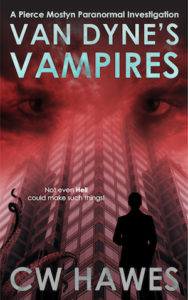Last week we took a look at the paranormal phenomenon in literature. The week I want to focus on the occult detective. Or in today’s parlance, the Paranormal Detective.
Edgar Allan Poe created the detective genre with his amateur sleuth, C. Auguste Dupin. It can easily be said that mother and son writing team, E. and H. Heron created the occult detective sub-genre with their Flaxman Low stories.
After Low’s introduction, a steady steam of occult detectives appeared on the literary scene. Some of them are:
Dr John Silence, created by Algernon Blackwood
Thomas Carnacki, created by William Hope Hodgson
Aylmer Vance, created by Alice and Claude Askew
Moris Klaw, created by Sax Rohmer
Jules de Grandin, created by Seabury Quinn
Steve Harrison, created by Robert E Howard
John Thunstone, created by Manly Wade Wellman
Dr Alex Caspian, created by Joseph Payne Brennan
Dirk Gently, created by Douglas Adams
Repairman Jack, created by F. Paul Wilson
The occult detective has also appeared on TV in shows such as Kolchak: The Night Stalker, Penny Dreadful, Twin Peaks, Angel, and, of course, The X-Files.
Twin Peaks and The X-Files gave a little twist to the occult detective genre by having the investigators FBI agents. The government was now involved, one way or the other, in the investigation of supernatural occurrences.
I grew up in the 50s and 60s. The UFO scare and the talk of government cover-ups was news. I remember reading of sightings, or watching reports on TV, along with the usual government “explanation”. I read books on UFOs “proving” their existence. Circumstantial evidence to be sure. But if it looks like a duck, walks like a duck…
Consequently, since writers write mostly about what they know, it was only a matter of time before my Muse gave me Pierce Mostyn and the Federal Office of Unidentified Phenomena. A Federal uber-secret agency whose purpose is to investigate and determine the threat level of those things that go bump in the night, and eliminate them if need be.
And what greater terror can there be, the greatest of those things that go bump in the night, then the Great Cthulhu and his ilk?
Lovecraft, in The Shadow Over Innsmouth, intimated that the Federal government was indeed interested in and sought to cover-up the existence of The Great Old Ones.
Pierce Mostyn and the Office of Unidentified Phenomena are a natural riff on Lovecraft and the government investigations and cover-ups alluded to in Lovecraft’s stories, Twin Peaks, and The X-Files. Along with being more action-oriented than those three predecessors.
Today, if you search Amazon, you’ll quickly see that the current crop of writers use the terms paranormal detective, or paranormal investigator.
The occult and supernatural are out, and the paranormal is in — at least as far as being a category identifier is concerned. So if you’re a writer writing about the occult and supernatural, just call it the paranormal and you should be alright.
Before I go, I do want to shine a spotlight on two excellent paranormal investigator reads. They are Herkimer’s Nose and Tony Price: Confidential (which is all three Tony Price volumes in one book). Richard Schwindt is an amazing storyteller. You won’t regret spending the 3 bucks to get these books.
Comments are always welcome! And until next time, happy reading!
Share This!
You’re right. Go “Paranormal” if you don’t want the story to slip down the back of the algorithm settee. It almost seems as though “Occult and Supernatural” are solely attributed to works of Non-Fiction these days. “Paranormal” has become the bridge between “Fantasy” and “Horror”, although the phrase today often conjures to mind a “triumvirate” of WWV (werewolf, witch, and vampire). Slapping something with the label “Weird” would likely ensure the instant doom of any work.
Yes, indeed. An author’s book will get little traction using “occult”, “supernatural”, or “weird” today, except amongst diehard and old school fans of dark fantasy and horror.
Hadn’t thought about it, but you’re right: the paranormal is something of a bridge and very often involves the WWV.
Thanks for stopping by, Crispian!
Thanks for this interesting overview, Christopher! I read a lot of what you mention in my well-spent youth, though so not much in this century.
“The occult and supernatural are out, and the paranormal is in — at least as far as being a category identifier is concerned. So if you’re a writer writing about the occult and supernatural, just call it the paranormal and you should be alright.”
True! Particularly since even publishing professionals sometimes need to be told it’s a duck no matter how it walks and quacks.
So much of SF is really magic in thin disguise. So we easily accept FLT, stargates, anti-gravity, time travel and so on. Luckily for writers like me, since I levitate huge skyscrapers and ships etc. in my trilogy with no explanation needed. Impossibilium, Unobtanium, and Handwavium come in very handy. In ‘Avatar’ James Cameron actually named the levitating mineral ‘Unobtanium’!
Thanks, John! I hadn’t thought of it that way: but, yes, a lot of scifi is unexplained or impossible technology — aka, magic. I don’t remember that from Avatar. Cameron’s joke was pretty clever.